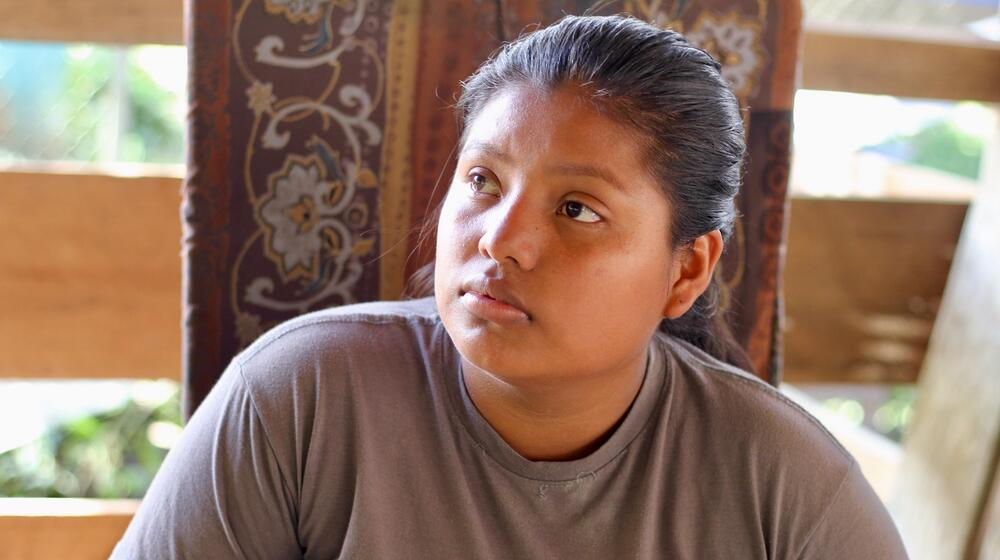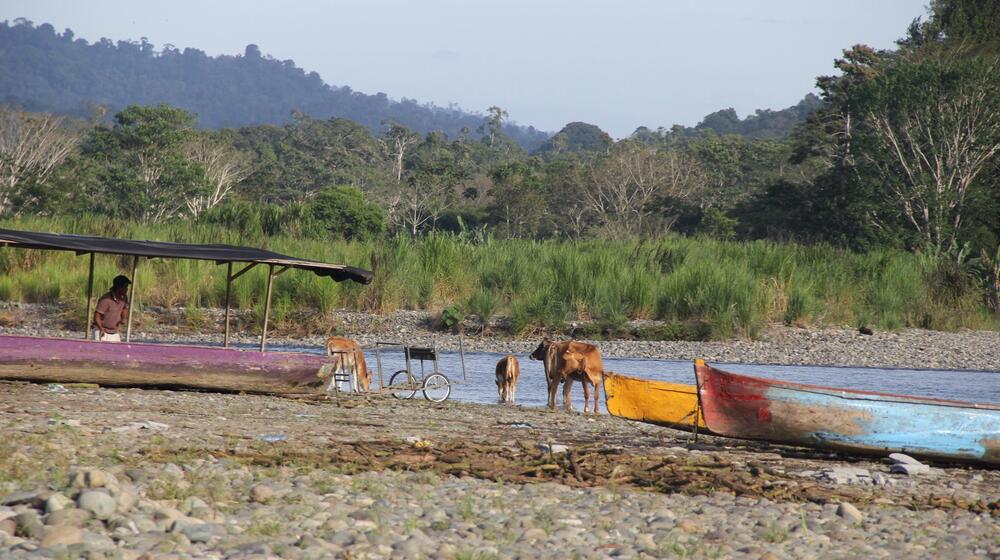News
In Costa Rica, indigenous youth leaders are blazing a trail toward a better future for women and girls
- 05 August 2022
News
CHINA KICHA, Costa Rica – Cheymi Gallardo Sánchez became a mother at age 15. In her rural community in the Cabécar indigenous territory, deep in the Talamanca mountains, adolescent motherhood is common. Talamanca is one of the cantons with the highest rates of teenage pregnancy in Costa Rica.
During her pregnancy, community members assumed that she would have to drop out of school – some even informed her she would need to. It was expected that she forgo her education and future job prospects to stay home and care for her baby. But Cheymi, now 18, has an independent streak.

“From a very early age I have been very free to speak,” she told UNFPA.
This determination served her well when she decided to continue her education. Throughout her pregnancy, she attended classes, walking three kilometres to her school and back every day. She went on to graduate and today plans to pursue further education and a career in gender and human rights.
Cheymi is not only determined; she has a gift with words, making her a role model in her community. “I have never been afraid to speak in public. I love participating in spaces where I can be myself, where my opinion is valid and I can motivate more people to get involved,” she said.
These qualities brought her to the attention of youth organizers, indigenous activists and UNFPA staff.
The rise of a leader
In 2019, Cheymi was invited to participate in UNFPA-supported youth activities in her community, and she soon attended a camp for young leaders from around the country. There she learned about sexual and reproductive rights issues, including the issue of teenage pregnancy, contraceptive methods and abusive relationships.
“After I got pregnant, those issues mattered more to me,” she explained. She wanted to be “a bridge of information within my territory and within my community, where I could tell my experience to other girls, let them know that they can take care of themselves, that there are contraceptive methods.”
Community members often discouraged girls from using contraceptives because of the stigma against adolescent sexual activity. “They always scared us, saying, 'People will point you out if you go to the clinic to get an implant or to get the copper IUD'. So I told them it’s not like that. No one is going to judge them. They have every right to take care of themselves so as not to have a pregnancy at an early age and fulfill their dreams.”
Visions of a better future
Today, she works with Kabata Konana, a group of indigenous women leaders, to promote sexual and reproductive health and rights and challenge gender stereotypes.
“Many times, we as indigenous women experience limitations. In some spaces, they believe that perhaps we are submissive, that we do not speak. That is motivation for me, to say, ´No. I express my opinions. I propose what I think, always respecting others’.”
She is also shattering these misconceptions on the national and regional stage, as a participant in delegations representing indigenous and Afro-descendant young people at meetings such as the Mesa Caribe and in groups like the Costa Rican United Nations Youth Advisory Group.

Still, life is not easy.
Cheymi works at her family’s small grocery store when not doing housework, cleaning and caring for her 3-year-old daughter Adeline. She balances all of this with her responsibilities as a youth leader – itself a challenging role. To travel to her various obligations, she must take a 45 minute motorcycle taxi ride to the nearest town serviced by public transportation.
But she says the effort is worth it.
“I have been in spaces where young people raise our voices – not only as young people but for our territory, for our rights, for our principles and our culture,” she said.
She already sees how these changes are improving the future her daughter will grow up in: “She has grown up in spaces where she can be herself. She has no limitations. Many times in our childhood or adolescence, in our communities, they take it upon themselves to tell us 'you can't speak, don't give your opinion'. My daughter is not like that. She asks questions. She is curious.”
In Adeline, Cheymi sees a better future for women and girls in their community: “These are things that fill me up because I know that she is on the right track.”
By Gabriela Rodríguez